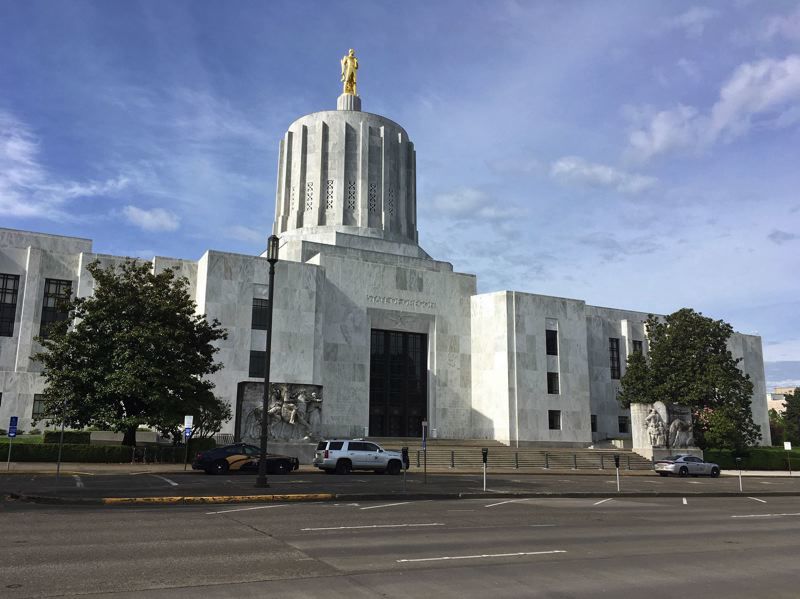Lawmakers delay Oregon paid family leave program
Published 2:27 pm Friday, June 25, 2021

- Oregon Capitol
Oregon’s new program of paid family leave would be delayed under a bill that is headed to Gov. Kate Brown.
A final 34-21 vote by the Oregon House on Friday moved House Bill 3398 to the governor. Democrats supplied all the votes for it. One Democrat, Paul Evans of Monmouth, joined 20 Republicans in opposition.
The Senate approved the amended version, largely to resolve conflicts, on a 21-7 vote the previous day.
The starting date for contributions by employers and employees would be put off by one year, from Jan. 1, 2022, to Jan. 1, 2023. The starting date for benefit payments would be Sept. 3, 2023, instead of Jan. 1.
Startup costs will be drawn from the tax-supported general fund, but will be repaid from contributions by employers and employees into the program.
The 2019 Legislature approved the program. Eight other states and Washington, D.C., have started or are preparing similar programs.
Employers would contribute 40% and employees 60% of a new fund based on payroll deductions. Workers who earn at least $1,000 during the previous year would qualify for up to 12 weeks of paid family leave, the maximum benefit set at $1,215 per week.
Oregon’s program is more generous than a proposal by President Joe Biden for a federal program, which would offer up to $4,000 per month. Congress has not acted on the federal program, which is part of Biden’s American Families Plan.
Acting Director David Gerstenfeld said the Oregon Employment Department sought the delay because it intends to integrate collections of employer and employee contributions into its computer modernization project, which starts its long-awaited first phase in July. The first phase also involves updating the collection of payroll taxes that employers pay into the state unemployment trust fund for benefits. Employees do not pay into that fund.
Though preparations for the new program have proceeded since the Legislature passed it in 2019, Gerstenfeld said staff — including himself — were diverted to handle new and expanded federal unemployment benefit programs since the onset of the coronavirus pandemic in March 2020.





